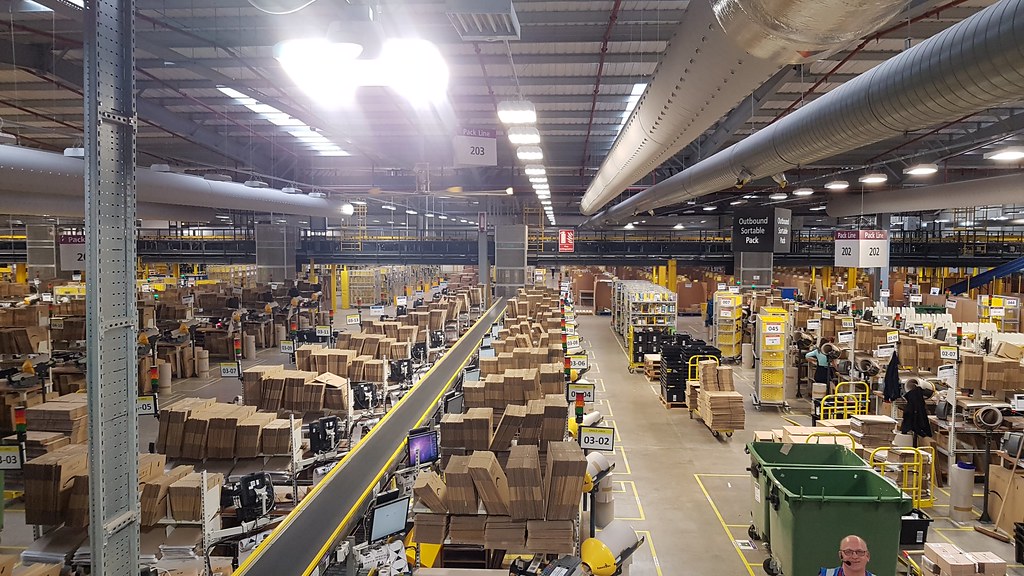
On April 2, President Donald Trump’s aggressive tariff policy sent shockwaves across industries, but it was particularly impactful for Amazon sellers who rely on China for manufacturing and assembly. With tariffs rising to as much as 145% on goods imported from China, sellers are now faced with a dilemma: raise prices or absorb the massively increased cost of importing their products.
Tariff Impact on Amazon Sellers
Many sellers on Amazon rely on China for manufacturing because of lower production costs and efficient infrastructure, with up to 70% of goods sold on Amazon coming from China. Following the latest tariffs, Amazon CEO Andy Jassy indicated that third-party sellers will likely “pass the cost on” to consumers. However, Amazon itself has already made moves to mitigate the price impact through strategic inventory purchases and renegotiating terms with suppliers.
While Trump temporarily lowered tariffs on most countries, the tariffs on Chinese goods remained in place, exacerbating the situation for businesses like Amazon sellers. A significant increase in costs is expected for many sellers, particularly those selling consumer goods like electronics, toys, and other products that rely heavily on Chinese imports.
For small businesses like Dusty Kenney’s PrimaStella brand, the tariffs pose a serious risk to profitability. Kenney explained that while she tried to keep prices low and absorb the costs, the increased tariffs on Chinese imports are pushing her to the brink. Additionally, competitors based in China, despite facing tariffs, still manage to offer products at lower prices, placing U.S. sellers at a significant disadvantage.
Many sellers are finding it difficult to move their operations out of China, especially with limited access to manufacturing infrastructure in the U.S. or other countries that could match China’s low production costs. Even though the tariffs are intended to revitalize U.S. manufacturing, transitioning factories back to the U.S. is not a simple or cost-effective solution for most sellers.
Rising Prices and Market Uncertainty
As tariffs remain in place, many sellers are left grappling with how to manage the price hikes. Larger companies like Amazon, who are more diversified, may be able to absorb some of the increased costs, but smaller sellers are feeling the financial strain. The uncertainty caused by the tariffs is not only affecting sellers, but it is also dampening consumer confidence, leading to concerns about an overall slowdown in e-commerce.
Another aspect of Trump’s trade policy that impacts Amazon sellers is the “de minimis” loophole, which exempts orders under $800 from paying duties. While it allowed Chinese-based sellers to ship goods directly to U.S. customers without tariffs, it gave an advantage to international competitors. Trump’s decision to end this exemption in May 2023 is seen as a potential win for U.S. sellers like Kenney, but the real impact remains to be seen as the global trade situation continues to evolve.
In the meantime, many sellers are shifting their manufacturing and sourcing strategies, including moving operations to countries like Vietnam, Mexico, and India to avoid tariffs on Chinese goods. However, these changes are not without their own challenges, as they still face potential tariffs under the new system.
What The Author Thinks
At the end of the day, these tariffs and policy shifts may create a long-term challenge for small and medium-sized businesses. Not only are these businesses forced to raise prices to cope with the rising costs, but they also risk losing out to international competition who may have more flexibility in production and pricing. If the government does not provide sufficient support for transitioning U.S. manufacturing, we could see more closures or exits from the market, further consolidating power into large corporations like Amazon. With such uncertainty, it seems like the real victims of these policies might be the small businesses that help keep the U.S. economy diverse and competitive.
Featured image credit: Jaimie Wilson via Flickr
Follow us for more breaking news on DMR
